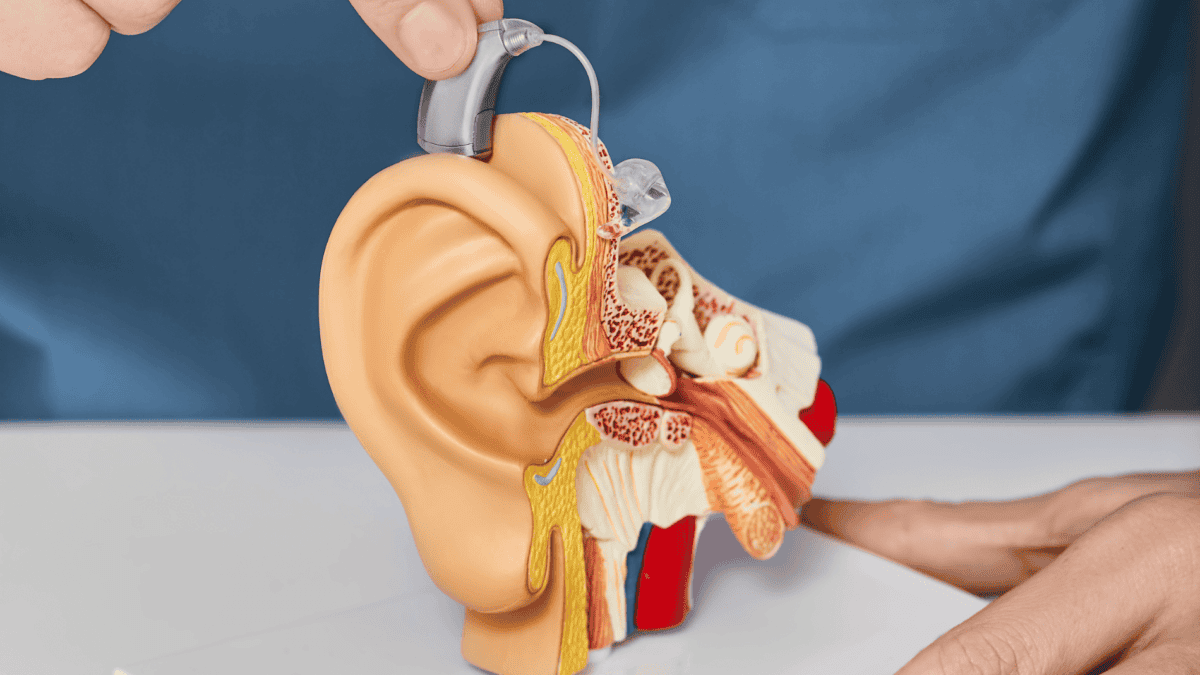- Why DIY Repairs Could Harm Your Hearing Aids - April 15, 2025
- Hearing Protection Solutions for Teamwork - April 6, 2025
- The Role of ABR in Identifying Auditory Neuropathy Spectrum Disorder - March 27, 2025
Our ability to hear is an incredible sense that allows us to connect with the world around us through sound. But how exactly does hearing work? There’s a lot at play, including the intricate anatomy of the ear, the process of sound transmission, and the complex workings of our auditory system. Let’s take a closer look at the science behind our remarkable sense of hearing.
Anatomy of the Ear
The ear is a complex organ divided into three main components: the outer ear, the middle ear, and the inner ear.
Outer Ear
The outer ear consists of the pinna (visible part of the ear) and the ear canal, which leads to the eardrum. Sound waves enter the ear through the pinna and travel down the ear canal, causing the eardrum to vibrate.
Middle Ear
The middle ear houses three small bones called ossicles: the malleus, incus, and stapes. When the eardrum vibrates, these ossicles amplify and transmit the sound to the inner ear. The stapes then presses against the oval window, a membrane that separates the middle ear from the inner ear.
Inner Ear
The inner ear contains the cochlea, a spiral-shaped, fluid-filled structure responsible for converting sound waves into electrical signals that can be interpreted by the brain. The cochlea is lined with tiny sensory cells called hair cells that transform the mechanical vibrations into electrical impulses.
Sound Transmission and Processing
The process of hearing begins with sound waves entering the ear. These waves travel through the ear canal, causing the eardrum to vibrate. As the eardrum vibrates, it sets the ossicles in motion, which amplify the sound before transmitting it to the cochlea.
As sound waves reach the cochlea, they create fluid movements that cause the hair cells to bend. This movement stimulates the hair cells to release chemical signals, which are converted into electrical impulses. These electrical impulses are then conveyed to the auditory nerve and transmitted to the brain for interpretation.
In the brain, the electrical impulses are processed and translated into meaningful sounds, allowing us to perceive and understand the world of sound around us.
What Happens in the Brain
Hearing isn’t just about the ear. It also relies on the auditory nerve, which carries the electrical signals from the cochlea to the brain, and the brain itself, where the signals are interpreted as sound.
The brain’s auditory cortex processes the electrical impulses received from the cochlea, allowing us to recognize different sounds, locate their source, and understand speech. The auditory system is incredibly complex, involving various regions of the brain that work together to create our rich auditory experience.
Protecting and Maintaining Healthy Hearing
Maintaining healthy hearing is essential for our overall well-being. It’s important to protect our ears from excessive noise exposure, as prolonged or loud noise can damage the delicate structures in the ear, including the hair cells in the cochlea.
Regular hearing tests with a hearing health professional are the best way to monitor your hearing health and detect any changes or signs of hearing loss early on. Booking a hearing test allows for personalized care and appropriate interventions, such as hearing aids or other assistive devices, if necessary.
Book Your Next Hearing Test
Understanding how hearing works provides us with invaluable insights into our remarkable sense of hearing. By learning more about the anatomy of the ear, the process of sound transmission, and the role of the auditory system, we can appreciate the delicate mechanisms that enable us to perceive and enjoy the world of sound.
To ensure optimal hearing health, it’s important to have regular hearing tests with a hearing health professional. They will assess your hearing, provide personalized care, and guide you on the best practices for maintaining healthy ears.
Contact us today to book your next hearing test! Together we’ll learn more about your hearing and monitor and safeguard your hearing health. We will provide personalized care, discuss any concerns or changes in your hearing, and offer appropriate solutions to enhance your communication abilities and overall well-being.

